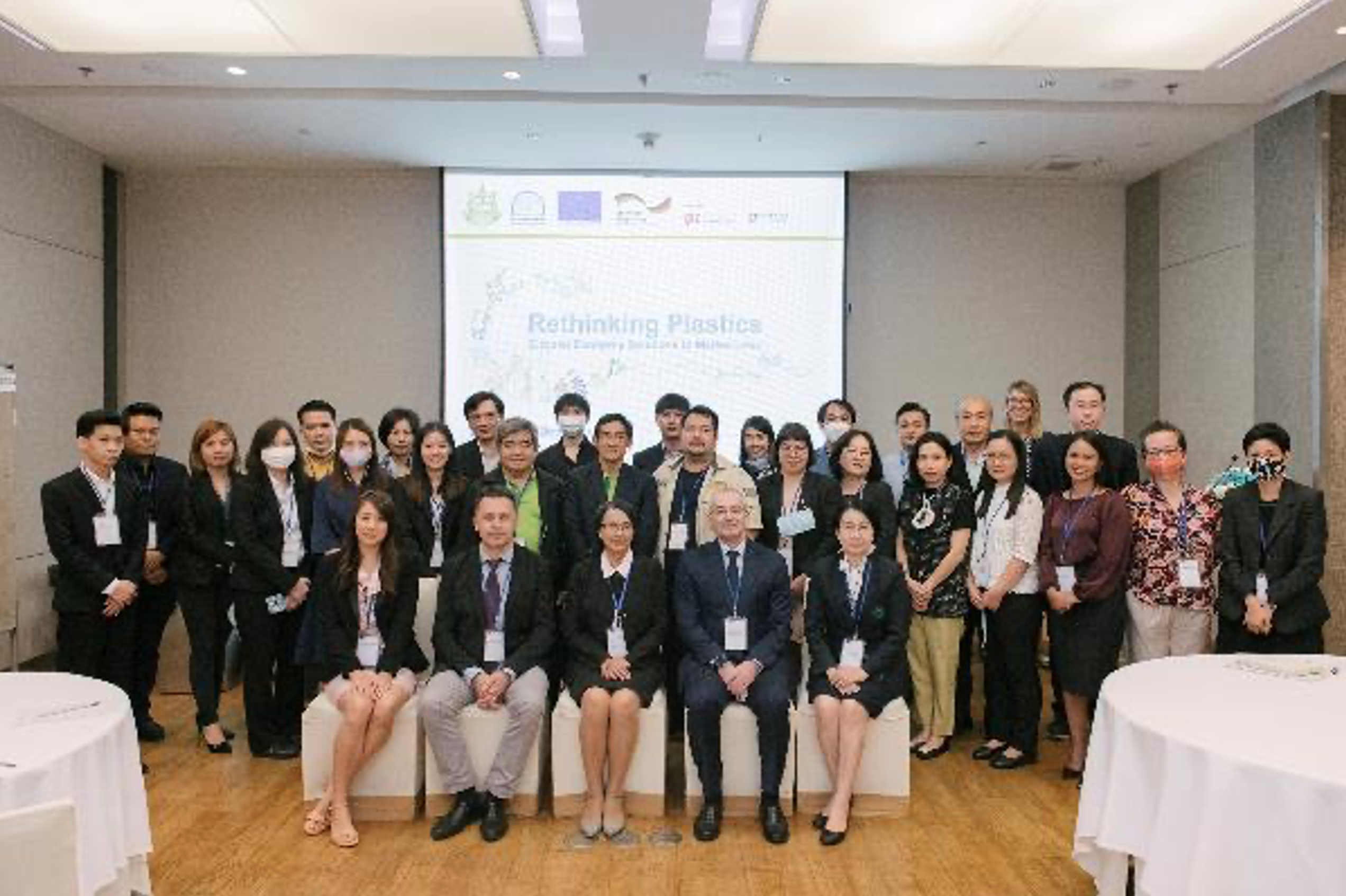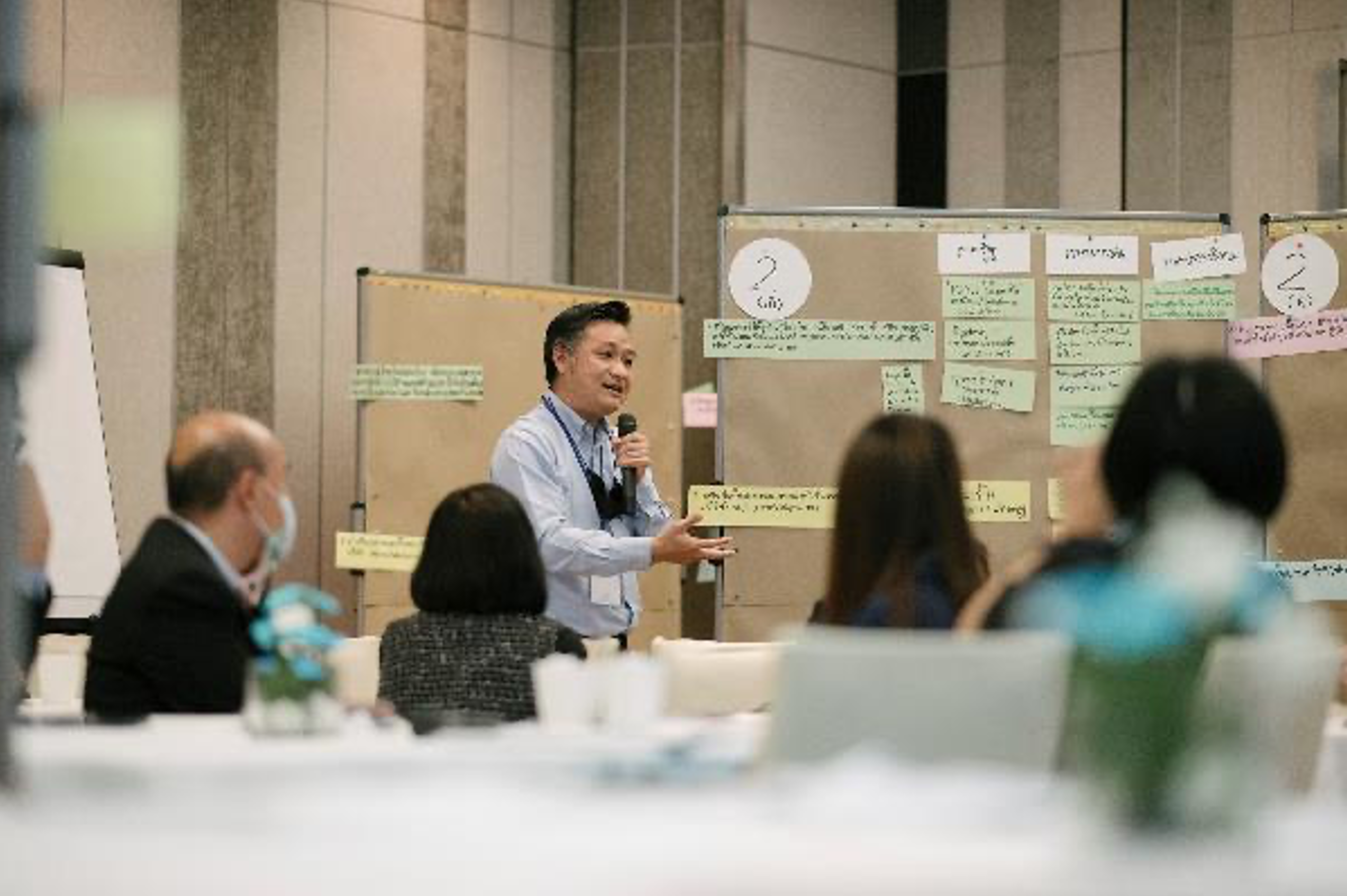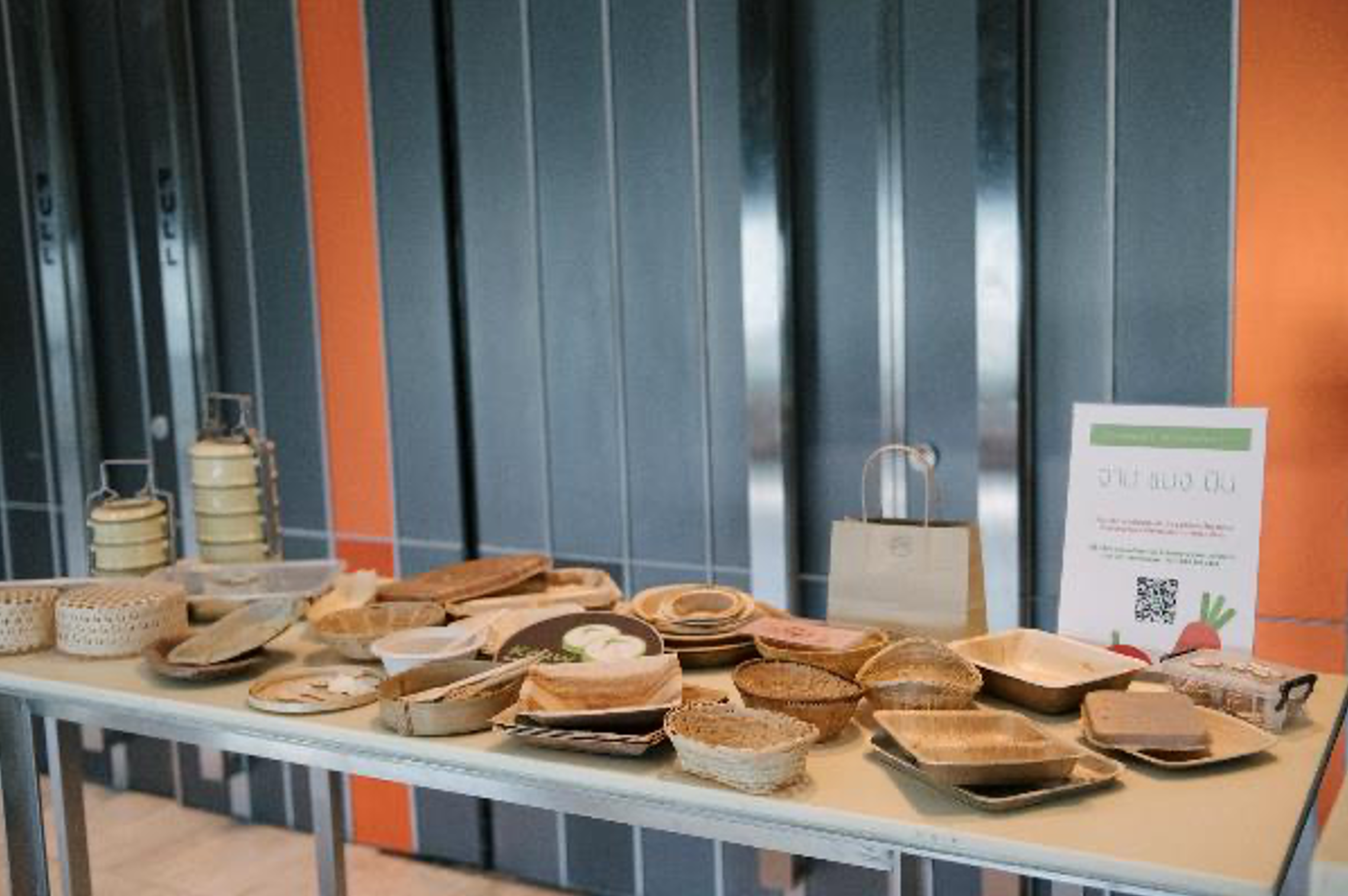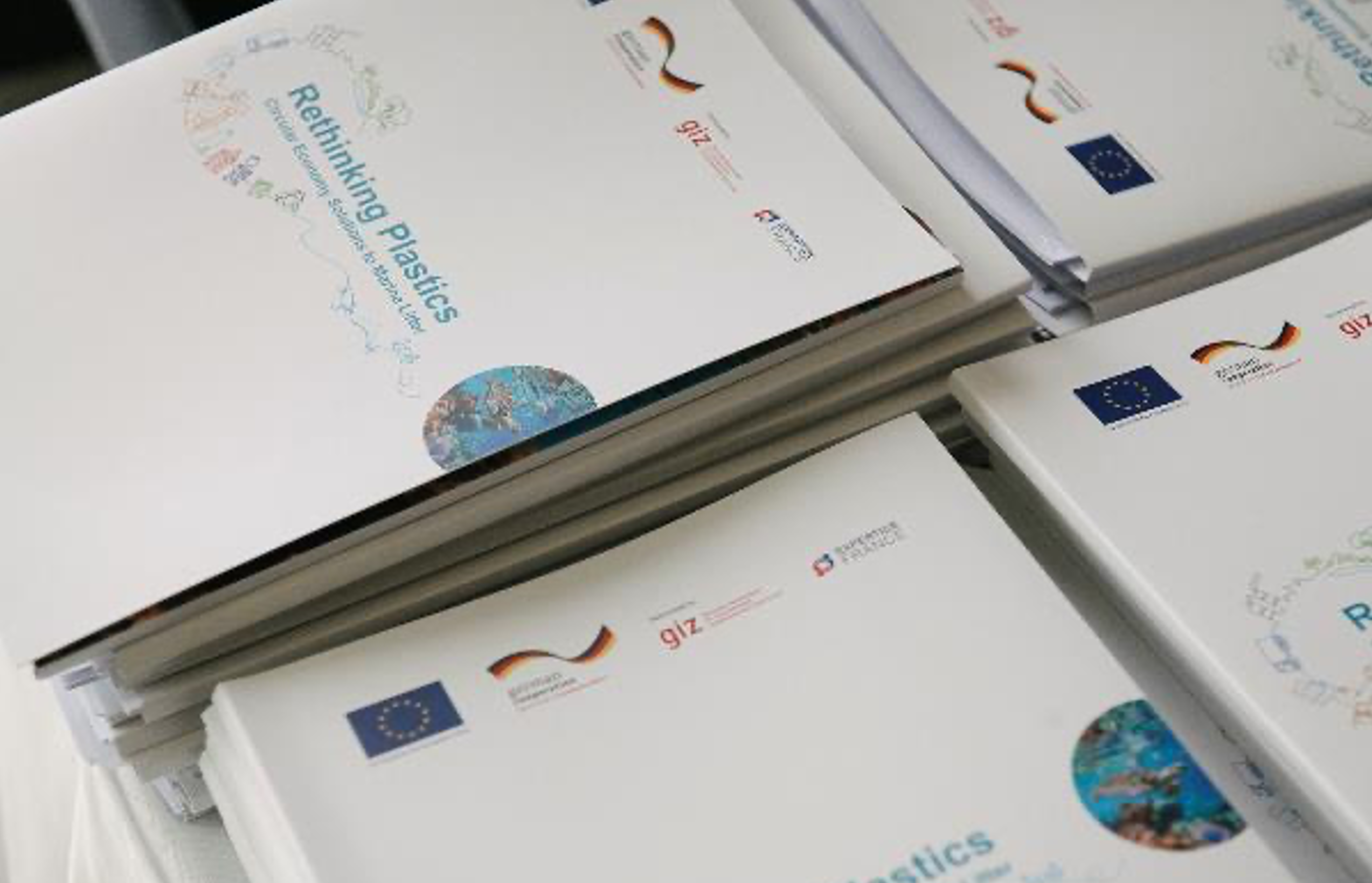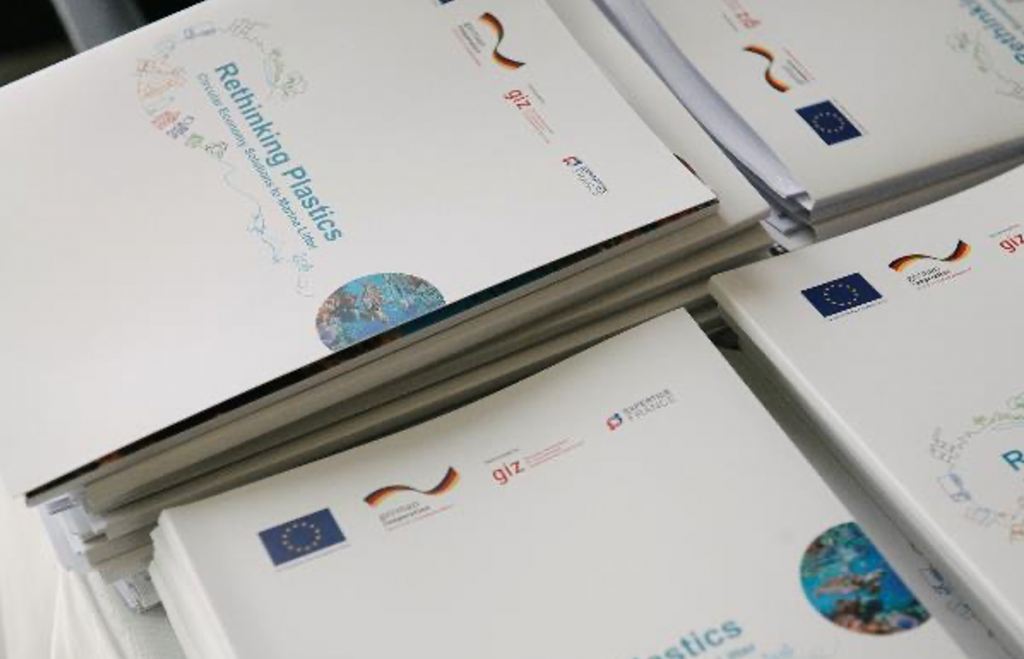
Plastic usage in food delivery, takeaway and online commerce have seen an additional rise due to COVID-19 related restaurant closures and distancing measures. The “Rethinking Plastics – Circular Economy Solutions to Marine Litter” project, funded by the European Union (EU) and the BMZ, fosters exchange on steps towards the reduction of single-use plastics and more sustainable alternatives and business models. In December, two dialogues on policies and practical examples took place in Indonesia and Thailand.
In 2020, plastic usage in food delivery, takeaway and online commerce saw an additional rise due to COVID-19 related restaurant closures, takeaway-only possibilities, and distancing measures. This led to an urgent need to exchange and take steps towards reduction of plastics and sustainable alternatives. The “Rethinking Plastics – Circular Economy Solutions to Marine Litter” project, funded by the European Union (EU) and the BMZ, fosters this exchange for example in Thailand and Indonesia. In Indonesia, the project held an Online Dialogue jointly with the Indonesia Plastic Bag Diet Movement (GIDKP) on 15 December, covering local and national policies to reduce single-use plastics as well as the issue of reducing single-use plastics in food delivery and takeaway. Key policy approaches from the EU for example include the new Circular Economy Action Plan as part of Europe’s Green Deal and the Plastics Strategy. A recording of the dialogue can be accessed on YouTube.
In Thailand, 13 organisations and businesses signed a Memorandum of Understanding (MoU) on reducing single-use plastics in food delivery in September 2020, organised by the Pollution Control Department (PCD) under the Ministry of Natural Resources and Environment (MNRE). Among the signees were big delivery platforms in Thailand such as Food Panda, Grab Food and Lineman. “Rethinking Plastics” currently supports PCD and the signees in intensifying their efforts. On 3 December, the project organised a workshop with 44 participants to follow up on the signing of the MoU and to exchange on further cooperation and necessary next steps between the public and private sector, academia and civil society. The participants exchanged on concrete needs and measures and learned from best practices and approaches in the region as well as in Europe. These practices include for example network solutions for restaurants, which provide reusable and returnable containers for food packaging.
To further add to these efforts, several GIZ projects currently work on a practical guide on “How to promote reusable packaging in food delivery and takeaway”, supported by the TUEWAS Innovation Fund.
Contact: rocky.pairunan@giz.de (Indonesia), imporn.ardbutra@giz.de (Thailand)
Buzzwords: circular economy, marine litter, sustainable consumption, plastic reduction, Thailand, Indonesia, food delivery

